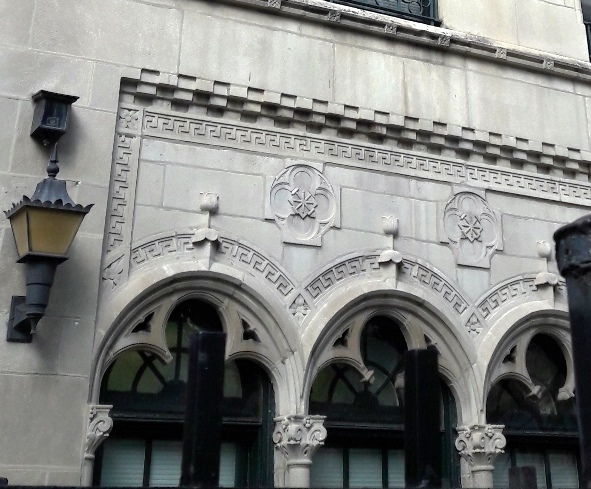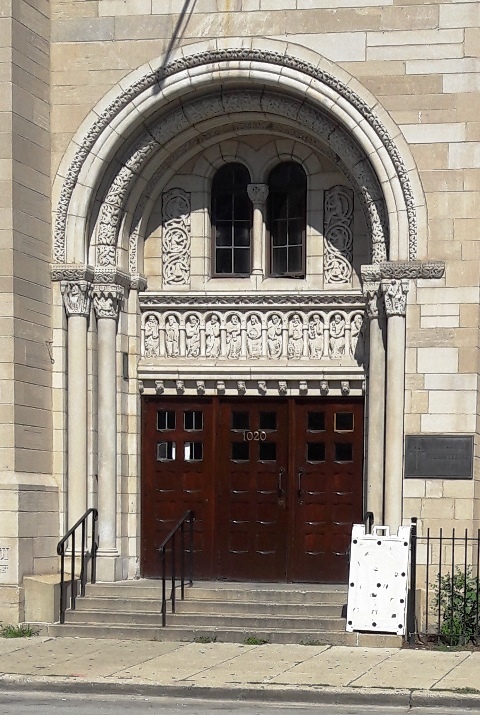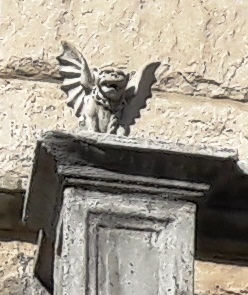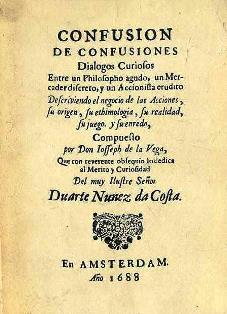Sue Burke's Blog, page 54
November 8, 2016
I voted! Here’s how

Call me nostalgic, but I like the drama of voting on voting day itself instead of voting early: hiking to the polling place, standing in line, greeting the polling place workers, and casting a ballot live and in person.
As Winston Churchill said: “At the bottom of all the tributes paid to democracy is the little man, walking into the little booth, with a little pencil, making a little cross on a little piece of paper – no amount of rhetoric or voluminous discussion can possibly diminish the overwhelming importance of that point.
Choosing the top of the ticket wasn’t hard. Some of the down-ballot choices were mystifying, especially the long list of judicial candidates. You can see the ballot for my neighborhood (and the vote totals after today) at the DNAinfo news website.
To be an informed voter, I studied every voting guide and endorsement list I could find or received in our mailbox: the Chicago Tribune (which endorsed Gary Johnson for president), Cook County Democratic Party (Clinton, no surprise), Independent Voters of Illinois, Human Rights Campaign, Planned Parenthood Illinois Action, Chicago NOW PAC, Asian American Bar Association, Black Women’s Lawyers Association, Chicago Council of Lawyers, Cook County Bar Association, Hispanic Lawyer’s Association, Illinois Bar Association, Lesbian and Gay Bar Association of Chicago, Puerto Rican Bar Association, Women’s Bar Association of Illinois, Committee to Elect Qualified Judges, and Chicago Votes Action Fund.
Everybody had an opinion and was eager to share it.
I compared the lists, did some additional research, and made a cheat-sheet to take into the ballot booth, an accepted practice in Illinois. I needed that. Seriously, there were more than 60 judicial positions on the ballot. What a litigious town!
My voting place is the Church of Atonement Episcopal, three blocks away. On the way I passed the address where Hillary Rodham Clinton spent the first three years of her life. Yes, she once lived only a block away from my house.
I expected a line. I’d returned some books at the Edgewater branch of the public library yesterday, which housed an early voting site, and the line started at the door, went up the steps, around the perimeter of the main room, down the hall, and finally into the room with the voting booths.
So I took my Kindle. Instead, the line was almost non-existent, and the election judges were cheerful and efficient. I got my four-foot-long, two-page paper ballot and a pen (not a pencil), and spent a while completing arrows next to candidates and referendum questions, then fed my ballot pages into the counting machine. They were number 388 and 389.
I got my “I VOTED! DID YOU?” bracelet, said thank you, peeked into the church sanctuary (nice stained glass) for a quick prayer for God’s mercy on our country, and left.
Then I bought some still-warm tortillas on the way home. Taco Tuesday, you know.
This evening, we’ll find out what happened. I recommend this guide to election night with a helpful non-partisan analysis, a map, and a chart.
No amount of rhetoric or voluminous discussion can possibly diminish the overwhelming importance of what all of us did today for democracy.
— Sue Burke
Published on November 08, 2016 09:58
November 7, 2016
Election-eve poll: Best comb-over!
Published on November 07, 2016 07:54
October 31, 2016
A review of two anthologies I helped translate
Arrate Hidalgo at Strange Horizons has a thoughtful review of two anthologies from Spain, Spanish Women of Wonder and Castles in Spain. She concludes:
"The question of whether a country’s SFF has reached a stage of maturity necessarily invokes the canon we’re measuring it up against. However, what transpires from these two anthologies is that they are the result of a conscious effort to reject comparison and to focus instead on what there is, distilling not only the quality but also the cultural relevance of Spanish SFF in an international context—registering, for instance, the interest of some of the most established authors among them (César Mallorquí, Rafael Marín, Eduardo Vaquerizo) in normalizing the use of autochthonous references. Or featuring, as does Spanish Women of Wonder, visions of contemporary sources of collective angst, including mass extinction by climate change and the erosion of our attention spans. Ultimately, these twenty-one short stories work very well together as a tip of the iceberg of Spanish speculative fiction, which incidentally appears to be a pretty sizeable one—and I for one sure hope it makes the splash it deserves."
Read the whole thing here:
http://www.strangehorizons.com/non-fiction/reviews/spanish-women-of-wonder-edited-by-cristina-jurado-and-leticia-lara-and-castles-in-spain-edited-by-mariano-villareal/
"The question of whether a country’s SFF has reached a stage of maturity necessarily invokes the canon we’re measuring it up against. However, what transpires from these two anthologies is that they are the result of a conscious effort to reject comparison and to focus instead on what there is, distilling not only the quality but also the cultural relevance of Spanish SFF in an international context—registering, for instance, the interest of some of the most established authors among them (César Mallorquí, Rafael Marín, Eduardo Vaquerizo) in normalizing the use of autochthonous references. Or featuring, as does Spanish Women of Wonder, visions of contemporary sources of collective angst, including mass extinction by climate change and the erosion of our attention spans. Ultimately, these twenty-one short stories work very well together as a tip of the iceberg of Spanish speculative fiction, which incidentally appears to be a pretty sizeable one—and I for one sure hope it makes the splash it deserves."
Read the whole thing here:
http://www.strangehorizons.com/non-fiction/reviews/spanish-women-of-wonder-edited-by-cristina-jurado-and-leticia-lara-and-castles-in-spain-edited-by-mariano-villareal/
Published on October 31, 2016 18:10
October 30, 2016
Why no game clock at baseball?
How long does a baseball game last?
Usually about three hours, but it can take under two hours or more than eight. Baseball uses no clock – unlike sports such as football or basketball. Why not?
Because baseball developed in the early 1800s when few people could afford a pocket watch. The rules had to be based on some other form of limits, so instead of minutes, umpires count strikes, outs, and innings.
It might take a long time to rack up three outs. Or it can be a fast three up, three down, and the pitcher walks off the mound to cheers.
In our daily lives, most of the time we live by the clock: time to go to work, time for dinner, time to get out of bed or to hit the snooze button and delay the inevitable a little while longer. But with baseball, there is no clock. Can you imagine when all of life was like that?
Go Cubs!
— Sue Burke
Usually about three hours, but it can take under two hours or more than eight. Baseball uses no clock – unlike sports such as football or basketball. Why not?
Because baseball developed in the early 1800s when few people could afford a pocket watch. The rules had to be based on some other form of limits, so instead of minutes, umpires count strikes, outs, and innings.
It might take a long time to rack up three outs. Or it can be a fast three up, three down, and the pitcher walks off the mound to cheers.
In our daily lives, most of the time we live by the clock: time to go to work, time for dinner, time to get out of bed or to hit the snooze button and delay the inevitable a little while longer. But with baseball, there is no clock. Can you imagine when all of life was like that?
Go Cubs!
— Sue Burke
Published on October 30, 2016 08:22
October 26, 2016
A easy, hilarious Halloween trick

If you want to have some fun with trick-or-treaters, you might do what my nephew did one year when he was a teenager.
First, he persuaded his parents to turn off all the lights and pretend no one was home.
Next, near the front door, he placed decorations and a bench with what seemed to be a scarecrow sitting there holding a bowl of candy in its lap. This was meant to be an invitation to trick-or-treaters: “Sorry, we’re not home, but we left some treats here for you. Come help yourself!”
It worked. People approached to take some candy. But...
The scarecrow was really my nephew in a costume and mask. When the trick-or-treaters got close enough, he’d leap up to personally offer them a treat. And he’d scare the bejeebers out of them. My sister and her husband were peeping through the curtains, and she said they were dying of laughter.
It was a great trick.
This would probably work with any kind of costume – witch, ghost, pirate – but not clown. Do not dress up as a clown this year. Clowns are creepy.
— Sue Burke
Published on October 26, 2016 08:08
October 12, 2016
Medieval Chicago
Chicago loves architecture. Chicagoans built the world’s first skyscraper in 1885, and over time other unique buildings drew on both innovations and the past for inspiration. In 1925, the Tribune Tower became a neo-Gothic landmark, a medieval-style skyscraper.
I’m fond of the Middle Ages, and I can find neo-Gothic architecture in my neighborhood in Edgewater, Chicago. Here are a few samples close to home:

Detail of an apartment building down the street.

An apartment building around the corner.

A storefront with a Mediterranean medieval influence.

Edgewater Presbyterian Church’s magnificent Romanesque doorway.

Not quite a castle tower battlement, but it’s the thought that counts.

A gargoyle. One of several in the neighborhood. Every neighborhood needs gargoyles.

Last but not least, not at all, St. Ita Catholic Church, built in 1924-1927 in French Gothic style. The building will be open to tours during Open House Chicago from 9:30 a.m. to 4 p.m. this Saturday, October 15. I can see the top of the bell tower right now from the window next to my desk, and I plan to toddle over this weekend and enjoy a look inside.
— Sue Burke
I’m fond of the Middle Ages, and I can find neo-Gothic architecture in my neighborhood in Edgewater, Chicago. Here are a few samples close to home:

Detail of an apartment building down the street.

An apartment building around the corner.

A storefront with a Mediterranean medieval influence.

Edgewater Presbyterian Church’s magnificent Romanesque doorway.

Not quite a castle tower battlement, but it’s the thought that counts.

A gargoyle. One of several in the neighborhood. Every neighborhood needs gargoyles.

Last but not least, not at all, St. Ita Catholic Church, built in 1924-1927 in French Gothic style. The building will be open to tours during Open House Chicago from 9:30 a.m. to 4 p.m. this Saturday, October 15. I can see the top of the bell tower right now from the window next to my desk, and I plan to toddle over this weekend and enjoy a look inside.
— Sue Burke
Published on October 12, 2016 08:34
October 4, 2016
We have our stuff!

Our stuff is here! When we were moving from Spain, we sent a shipment off with a moving company on July 15. It finally arrived!
Books, cookware, clothing, photos, home office stuff, photos, sheets, towels -- everything to make a house a home.
I'm off to open boxes.
Published on October 04, 2016 08:50
September 28, 2016
My fun and funny award-winning translation
I’m delighted to say that I’ve won the 2016 Alicia Gordon Award for Word Artistry in Translation! It’s presented by American Foundation for Translation and Interpretation, which is affiliated with the American Translators Association.
The award is given for a translation from French or Spanish into English, or from English into French or Spanish, in any subject that demonstrates the highest level of creativity in solving a particularly difficult challenge. It was established in memory of Alicia Gordon, known for creating imaginative solutions to knotty translation problems based on rigorous research.
I won for my translation of Confusión de Confusiones by Joseph de la Vega, published in 1688, about the Amsterdam Stock Exchange. It was the first book ever written about stock trading, and the Amsterdam market was the earliest of its kind, established in 1602.
Joseph de la Vega was a writer whose Jewish family had fled Spain to Amsterdam. He wrote in a Baroque style called Conceptismo, which is characterized by witty metaphors and wordplay to convey multiple meanings and conceptual intricacies, all with the utmost concision.
I was asked to translate some if the excerpts from his book actually dealing with the stock market; the book rambles into long digressions and allegories on all manner of subjects. The translation was for the Spanish National Stock Exchange Commission, which published Confusión de Confusiones along with with my translation and some scholarly essays to give as an institutional gift. The book came out in December 2015.
My challenge and delight was to translate all the wit and laugh-out-loud fun of the original text into English.
Here are some excerpts, first my English, then de la Vega’s original Spanish.

I came to devise these dialogues, which I hope worthy of curiosity, with three considerations in mind. First, to fill my spare time with a little delightful entertainment that would not be immodest. Second, to describe (for those not involved in it) a business that is the most authentic and useful known today in Europe. And third, to show truthfully the wiles used by the speculators who sully it, which for some will serve as a delight, others as a warning, and many as a lesson.
The business of stocks is so widespread here that it would feel impertinent to speak of anything else, and there are those who only dream that they know what they speak of and even while dreaming do not cease to ponder it.
It is an enigmatic business, both the most splendid and most treacherous in Europe, the most noble and most loathsome known to the world, and the most subtle and most vulgar practiced on the globe. It is the convocation of knowledge and compendium of turmoil, touchstone for the wise and tombstone for the rash, source of profit and origin of disaster.
Yet I will not deny that I would have felt an urge to try my luck if three important obstacles did not stop me. First, I would have to embark on a ship so exposed to the rigors of fate that each wind is a storm and each wave a shipwreck.
Second, I would have to make a profit from the start, since my capital is limited. I would have to be prepared to pay if I were to lose, or at least to keep my capital only if I were so treacherous as to decide to forsake honor. But I would expose myself to the possibility that my first loss would make me infamous without the consolation of being rich, and to me this seems vain to consider and delirious to attempt.
Third, to me this business seems unworthy of a philosopher, and besides, as everyone would know how humble my purse is when they saw that I cannot purchase on my own account, no one would place trust in my mere appearance, and I cannot that imagine anyone would lend me money.
People of diverse customs, different nations, and a variety of trades embark for this new world. Philosophers arrive to discover the little in this circus that differentiates the moto animal from the moto violento. Geomancers dare involvement because as they measure its circumference they find some lines they call irrational. Astrologers become enthusiastic, boasting that they have spotted their own star amid all the others. The curious draw near to learn something from those who are so wise. Poets refine their fantasies, lawyers their subtleties, sophists their complications. The devout seek approval, penitents remorse, and ship pilots latitudes of glory, high winds, and sharp compass needles. The barber works happily because he can shave something off everyone. The doctor comes to treat wounds and apply bandages during battles and soon learns not to treat injuries right away. The shoemaker believes he can fit the same shoe to everyone. The tailor succeeds in clipping attire. The sculptor accustoms himself to carving men from stone so that some of them will not sense outrage and seek furious revenge. The speculator arrives to scrutinize his luck, the lover to improve his appearance, the soldier to perfect his wiles. The blacksmith brings iron, the musician plays dissonant fugues, the mathematician figures accounts, the painter takes perspectives and sketches shadows, and the fencer feints and lunges. Finally, no courtesan studies this business to acquire patience; no rustic to become inured to disdain, nor the French to fury, the English to pride, the Turk to noise, the Italian to disguise, the Flemish to phlegm, the German to arrogance, the Polish to flight, or the Spanish to profanity.
And despite the delusion, distraction, delirium, doubt, and dilemma that accompany profits, there are ways to easily discover where most opinions lean, both in policies and in fundamentals. Whoever dedicates himself to follow these opinions seriously, without blinding passions or changeable whims, will not fail to succeed often, if not always. And when all things are considered, he will realize there is nothing more astute than to pursue speculation nor anything wiser than to drift with the current.
………
Tres motivos tuvo mi ingenio para tejer estos Diálogos que espero merezcan el título de curiosos. El primero, entretener el ocio con algún deleite que no menoscabe lo modesto. El segundo, describir (para los que no lo practican) un negocio que es el más real y útil que se conoce hoy en Europa. Y el tercero, mostrar con veracidad las astucias de que se valen los tahúres que lo ensucian, para que a unos sirva de delicia, a otros de aviso, y a muchos de escarmiento.
El negocio de las acciones está tan difundido en esta plaza que sienta plaza de impertinente el que habla de otro tema, y hay quienes sin saber ni por sueños de lo que hablan, hasta en sueños piensan en él.
Un negocio enigmático, que es a la vez el más real y el más falso de Europa, el más noble y el más infame que conoce el mundo, el más fino y el más grosero que se practica en el orbe. Conjunto de ciencias y compendio de enredos, piedra de toque de los sagaces y piedra de túmulo de los atrevidos, tesoro de ganancias y causa de desastres.
No negaré, sin embargo, que me siento impulsado a probar suerte, si no hubiera tres importantes obstáculos que me lo impiden. El primero, tener que embarcar en una nave tan expuesta a los rigores de la fatalidad, pues cada viento es una tormenta y cada ola un naufragio.
El segundo, que necesitaría empezar ganando, pues al ser mi capital limitado, debería estar preparado para pagar cuando perdiera, o quedar al menos con capital si fuera tan alevoso que me resuelva a quedar sin honra. Pero exponerme a que la primera vez que pierda me haga infame, sin que me consuele quedar rico, me parece que es vanidad pensarlo y es delirio realizarlo.
El tercero, que este trato me parece indigno de un filósofo, además de que, al conocer todos lo humilde de mi bolsa, cuando vean que no empiezo a recibir partidas en mi cuenta, no habrá quien se fíe de mis barbas, ni me imagino quién pueda darme dinero por ellas.
Se embarcan para este nuevo mundo gentes de diversas costumbres, de diferentes naciones y de varios empleos. Entran los filósofos para encontrar en estos circos lo poco que difiere el moto animal del moto violento. Se aventuran los geómetras, porque encuentran en estas circunferencias algunas líneas de las que ellos llaman irracionales. Se entusiasman los astrólogos, presumiendo divisar, entre tantas estrellas, la suya. Los curiosos se arriman para aprender algo de los que saben tanta letra. Refina el poeta sus fábulas, el jurisconsulto sus sutilezas, los reflexivos sus enredos. Los devotos buscan miradas, los penitentes arrepentimientos, y los pilotos las alturas que engrandecen, los vientos que soplan y las agujas que pican. Entra el barbero contento porque ha de afeitar a todos. Entra el cirujano para sanar las llagas, para valerse de los parches en estas batallas y para acostumbrarse a no sanar las heridas a la primera. Entra el zapatero, presumiendo que meterá a todos en un zapato. Entra el sastre para cortar los vestidos. Entra el escultor para acostumbrarse a tallar hombres de piedra, porque algunos no sienten los ultrajes ni se enfurecen buscando venganza. Entra el tahúr a relojear su suerte, el amante a mejorar su aspecto, el soldado a perfeccionar sus mañas. El herrero a traer hierros, el músico disonancias y fugas, el aritmético a hacer cuentas, el pintor perspectivas, lejos y sombras, el espadachín atajos para sus reveses. Por último, no se eximen de este negocio ni el cortesano para habituarse a la paciencia, ni el rústico para acostumbrarse al desprecio, ni el francés a la furia, ni el inglés a la soberbia, ni el turco al ruido, ni el italiano al disfraz, ni el flamenco a la flema, ni el alemán a la arrogancia, ni el polaco a huir, ni el español a maldecir.
Y a pesar de todos estos devaneos, desconciertos, desvaríos, dudas e incertidumbres de las ganancias, no faltan medios para saber sencillamente hacia dónde inclina la mayoría sus suposiciones, tanto en lo político como en lo fundamental. Y quien se dedique a seguirlas seriamente, sin pasión que lo ciegue ni capricho que lo altere, no dejará de acertar muchas veces, si no todas. Y, cuando haga la cuenta, reconocerá que no hay más astucia que ir tras el juego, ni más sabiduría que seguir la corriente.
— Sue Burke
The award is given for a translation from French or Spanish into English, or from English into French or Spanish, in any subject that demonstrates the highest level of creativity in solving a particularly difficult challenge. It was established in memory of Alicia Gordon, known for creating imaginative solutions to knotty translation problems based on rigorous research.
I won for my translation of Confusión de Confusiones by Joseph de la Vega, published in 1688, about the Amsterdam Stock Exchange. It was the first book ever written about stock trading, and the Amsterdam market was the earliest of its kind, established in 1602.
Joseph de la Vega was a writer whose Jewish family had fled Spain to Amsterdam. He wrote in a Baroque style called Conceptismo, which is characterized by witty metaphors and wordplay to convey multiple meanings and conceptual intricacies, all with the utmost concision.
I was asked to translate some if the excerpts from his book actually dealing with the stock market; the book rambles into long digressions and allegories on all manner of subjects. The translation was for the Spanish National Stock Exchange Commission, which published Confusión de Confusiones along with with my translation and some scholarly essays to give as an institutional gift. The book came out in December 2015.
My challenge and delight was to translate all the wit and laugh-out-loud fun of the original text into English.
Here are some excerpts, first my English, then de la Vega’s original Spanish.

I came to devise these dialogues, which I hope worthy of curiosity, with three considerations in mind. First, to fill my spare time with a little delightful entertainment that would not be immodest. Second, to describe (for those not involved in it) a business that is the most authentic and useful known today in Europe. And third, to show truthfully the wiles used by the speculators who sully it, which for some will serve as a delight, others as a warning, and many as a lesson.
The business of stocks is so widespread here that it would feel impertinent to speak of anything else, and there are those who only dream that they know what they speak of and even while dreaming do not cease to ponder it.
It is an enigmatic business, both the most splendid and most treacherous in Europe, the most noble and most loathsome known to the world, and the most subtle and most vulgar practiced on the globe. It is the convocation of knowledge and compendium of turmoil, touchstone for the wise and tombstone for the rash, source of profit and origin of disaster.
Yet I will not deny that I would have felt an urge to try my luck if three important obstacles did not stop me. First, I would have to embark on a ship so exposed to the rigors of fate that each wind is a storm and each wave a shipwreck.
Second, I would have to make a profit from the start, since my capital is limited. I would have to be prepared to pay if I were to lose, or at least to keep my capital only if I were so treacherous as to decide to forsake honor. But I would expose myself to the possibility that my first loss would make me infamous without the consolation of being rich, and to me this seems vain to consider and delirious to attempt.
Third, to me this business seems unworthy of a philosopher, and besides, as everyone would know how humble my purse is when they saw that I cannot purchase on my own account, no one would place trust in my mere appearance, and I cannot that imagine anyone would lend me money.
People of diverse customs, different nations, and a variety of trades embark for this new world. Philosophers arrive to discover the little in this circus that differentiates the moto animal from the moto violento. Geomancers dare involvement because as they measure its circumference they find some lines they call irrational. Astrologers become enthusiastic, boasting that they have spotted their own star amid all the others. The curious draw near to learn something from those who are so wise. Poets refine their fantasies, lawyers their subtleties, sophists their complications. The devout seek approval, penitents remorse, and ship pilots latitudes of glory, high winds, and sharp compass needles. The barber works happily because he can shave something off everyone. The doctor comes to treat wounds and apply bandages during battles and soon learns not to treat injuries right away. The shoemaker believes he can fit the same shoe to everyone. The tailor succeeds in clipping attire. The sculptor accustoms himself to carving men from stone so that some of them will not sense outrage and seek furious revenge. The speculator arrives to scrutinize his luck, the lover to improve his appearance, the soldier to perfect his wiles. The blacksmith brings iron, the musician plays dissonant fugues, the mathematician figures accounts, the painter takes perspectives and sketches shadows, and the fencer feints and lunges. Finally, no courtesan studies this business to acquire patience; no rustic to become inured to disdain, nor the French to fury, the English to pride, the Turk to noise, the Italian to disguise, the Flemish to phlegm, the German to arrogance, the Polish to flight, or the Spanish to profanity.
And despite the delusion, distraction, delirium, doubt, and dilemma that accompany profits, there are ways to easily discover where most opinions lean, both in policies and in fundamentals. Whoever dedicates himself to follow these opinions seriously, without blinding passions or changeable whims, will not fail to succeed often, if not always. And when all things are considered, he will realize there is nothing more astute than to pursue speculation nor anything wiser than to drift with the current.
………
Tres motivos tuvo mi ingenio para tejer estos Diálogos que espero merezcan el título de curiosos. El primero, entretener el ocio con algún deleite que no menoscabe lo modesto. El segundo, describir (para los que no lo practican) un negocio que es el más real y útil que se conoce hoy en Europa. Y el tercero, mostrar con veracidad las astucias de que se valen los tahúres que lo ensucian, para que a unos sirva de delicia, a otros de aviso, y a muchos de escarmiento.
El negocio de las acciones está tan difundido en esta plaza que sienta plaza de impertinente el que habla de otro tema, y hay quienes sin saber ni por sueños de lo que hablan, hasta en sueños piensan en él.
Un negocio enigmático, que es a la vez el más real y el más falso de Europa, el más noble y el más infame que conoce el mundo, el más fino y el más grosero que se practica en el orbe. Conjunto de ciencias y compendio de enredos, piedra de toque de los sagaces y piedra de túmulo de los atrevidos, tesoro de ganancias y causa de desastres.
No negaré, sin embargo, que me siento impulsado a probar suerte, si no hubiera tres importantes obstáculos que me lo impiden. El primero, tener que embarcar en una nave tan expuesta a los rigores de la fatalidad, pues cada viento es una tormenta y cada ola un naufragio.
El segundo, que necesitaría empezar ganando, pues al ser mi capital limitado, debería estar preparado para pagar cuando perdiera, o quedar al menos con capital si fuera tan alevoso que me resuelva a quedar sin honra. Pero exponerme a que la primera vez que pierda me haga infame, sin que me consuele quedar rico, me parece que es vanidad pensarlo y es delirio realizarlo.
El tercero, que este trato me parece indigno de un filósofo, además de que, al conocer todos lo humilde de mi bolsa, cuando vean que no empiezo a recibir partidas en mi cuenta, no habrá quien se fíe de mis barbas, ni me imagino quién pueda darme dinero por ellas.
Se embarcan para este nuevo mundo gentes de diversas costumbres, de diferentes naciones y de varios empleos. Entran los filósofos para encontrar en estos circos lo poco que difiere el moto animal del moto violento. Se aventuran los geómetras, porque encuentran en estas circunferencias algunas líneas de las que ellos llaman irracionales. Se entusiasman los astrólogos, presumiendo divisar, entre tantas estrellas, la suya. Los curiosos se arriman para aprender algo de los que saben tanta letra. Refina el poeta sus fábulas, el jurisconsulto sus sutilezas, los reflexivos sus enredos. Los devotos buscan miradas, los penitentes arrepentimientos, y los pilotos las alturas que engrandecen, los vientos que soplan y las agujas que pican. Entra el barbero contento porque ha de afeitar a todos. Entra el cirujano para sanar las llagas, para valerse de los parches en estas batallas y para acostumbrarse a no sanar las heridas a la primera. Entra el zapatero, presumiendo que meterá a todos en un zapato. Entra el sastre para cortar los vestidos. Entra el escultor para acostumbrarse a tallar hombres de piedra, porque algunos no sienten los ultrajes ni se enfurecen buscando venganza. Entra el tahúr a relojear su suerte, el amante a mejorar su aspecto, el soldado a perfeccionar sus mañas. El herrero a traer hierros, el músico disonancias y fugas, el aritmético a hacer cuentas, el pintor perspectivas, lejos y sombras, el espadachín atajos para sus reveses. Por último, no se eximen de este negocio ni el cortesano para habituarse a la paciencia, ni el rústico para acostumbrarse al desprecio, ni el francés a la furia, ni el inglés a la soberbia, ni el turco al ruido, ni el italiano al disfraz, ni el flamenco a la flema, ni el alemán a la arrogancia, ni el polaco a huir, ni el español a maldecir.
Y a pesar de todos estos devaneos, desconciertos, desvaríos, dudas e incertidumbres de las ganancias, no faltan medios para saber sencillamente hacia dónde inclina la mayoría sus suposiciones, tanto en lo político como en lo fundamental. Y quien se dedique a seguirlas seriamente, sin pasión que lo ciegue ni capricho que lo altere, no dejará de acertar muchas veces, si no todas. Y, cuando haga la cuenta, reconocerá que no hay más astucia que ir tras el juego, ni más sabiduría que seguir la corriente.
— Sue Burke
Published on September 28, 2016 08:28
September 21, 2016
Robes were for thieves
Every word in every language has a history. The word robe and its Spanish cousin ropa (clothing) share a history of violence and sorrow that started 1600 years ago.
Back then, clothing was costly, even the most humble garment. Everything was made by hand: animals were clipped and plants were harvested and processed for fiber, fiber was spun into thread, thread was woven into cloth, and cloth was sewn into clothing. It was a long, tedious process that cost endless hours of labor.
In 407, as the Roman Empire was falling, the barbaric Germanic tribe of the Vandals swept into the Iberian peninsula. We get the word vandalism from their name, so you can imagine what they were like.
Meanwhile, the Visigoths, another barbaric Germanic tribe, were sacking Rome. In 456, after a brief, unwelcome stay in France, the Visigoths invaded and conquered Iberia and, during a century-long period of warfare, sacked whatever they found still standing.
What did they find to pillage? By then, not much. Although peasants had been reduced to poverty and hunger, they still had the clothes on their back – but not for long. Soon they were poor, hungry and naked.
The Germanic word for pillage was “raub” and it came to be applied to what the Visigoths took: clothing. That’s how the word “ropa” came into the Spanish language; and via French, the word “robe” came into English.
In parallel, the word raub became “rob” in English and robar (to rob) in Spanish, perhaps via the people whose clothing was robbed and couldn’t have been happy about it, so they remembered the initial meaning of the word.
It’s said that history is written by the victors, but the words they use can tell a secret history, sometimes a very different story.
— Sue Burke
Also posted at my professional writing website:
Back then, clothing was costly, even the most humble garment. Everything was made by hand: animals were clipped and plants were harvested and processed for fiber, fiber was spun into thread, thread was woven into cloth, and cloth was sewn into clothing. It was a long, tedious process that cost endless hours of labor.
In 407, as the Roman Empire was falling, the barbaric Germanic tribe of the Vandals swept into the Iberian peninsula. We get the word vandalism from their name, so you can imagine what they were like.
Meanwhile, the Visigoths, another barbaric Germanic tribe, were sacking Rome. In 456, after a brief, unwelcome stay in France, the Visigoths invaded and conquered Iberia and, during a century-long period of warfare, sacked whatever they found still standing.
What did they find to pillage? By then, not much. Although peasants had been reduced to poverty and hunger, they still had the clothes on their back – but not for long. Soon they were poor, hungry and naked.
The Germanic word for pillage was “raub” and it came to be applied to what the Visigoths took: clothing. That’s how the word “ropa” came into the Spanish language; and via French, the word “robe” came into English.
In parallel, the word raub became “rob” in English and robar (to rob) in Spanish, perhaps via the people whose clothing was robbed and couldn’t have been happy about it, so they remembered the initial meaning of the word.
It’s said that history is written by the victors, but the words they use can tell a secret history, sometimes a very different story.
— Sue Burke
Also posted at my professional writing website:
Published on September 21, 2016 07:45
September 13, 2016
"The Perfect Place for Ghosts" in SuperSonic #5

My short story "The Perfect Place for Ghosts" has just been published in SuperSonic, a bilingual (Spanish and English) magazine. The story, in English, is about a novice ghost hunter on his first case in Madrid, protecting its art, and includes a a few (allegedly) real local ghosts, along with some imaginary ones, such Ernst Hemingway, who is brave and wise.
The magazine, which also contains "Fotos de gatos por favor" by Naomi Kritzer (practice your Spanish!), costs only 2.99€ (US$3.36) and can be bought with credit cards and PayPal at:
https://lektu.com/l/supersonic-magazine/supersonic-no5/5658
- Sue Burke
Published on September 13, 2016 10:52





